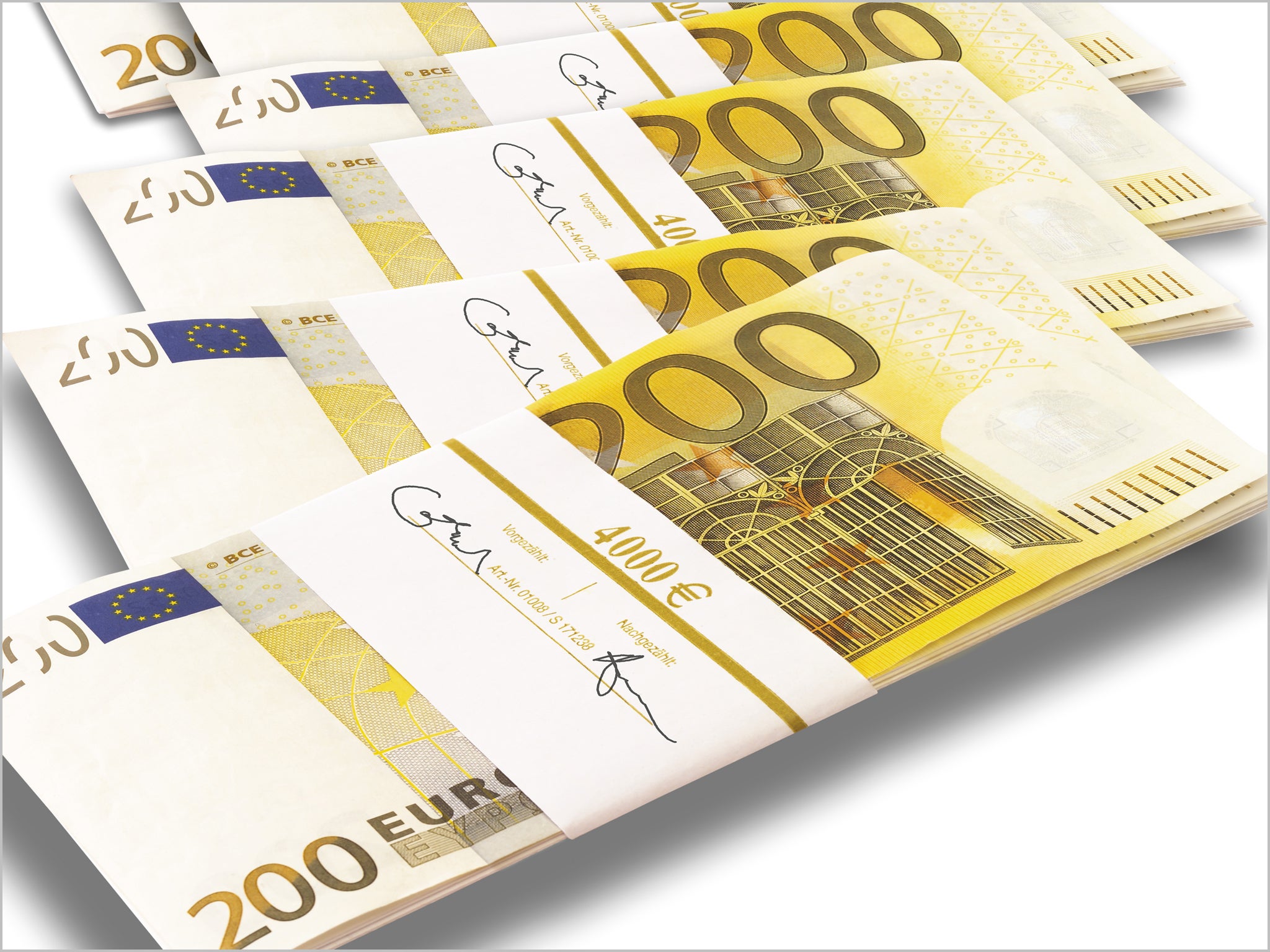Goodbye, the money-launderer's choice: €200 note to be taken out of UK circulation
High-denomination notes vital for cash-only crime business that relies on huge cross-border financial transfers

Eurotrash mourn. The €200 note - the cash of choice for casino high-rollers, the ostentatiously rich and drug dealers with very small hiding places to fill - is set to be taken out of circulation in Britain.
Detectives are pressing for its removal after it was identified as the note of choice for criminals seeking to launder proceeds into fewer high denomination notes to make them easier to hide for movement abroad.
Its demise would follow that of the €500 note, which was taken out of circulation in 2010 after it was discovered that only 10 per cent of the €500m worth of notes brought to Britain were used legitimately.
Such high-denomination notes are vital for a largely cash-only multinational crime business that relies on huge cross-border financial transfers. More than £2 billion is laundered through money exchange bureaus in the UK every year from drug deals, prostitution and fraud for re-use abroad and for deals within criminal networks, according to the Serious Organised Crime Agency.
Police and tax officers last week raided ten money exchange bureaus in the capital, which resulted in the arrests of six people and the suspension of four operators' licences. Surveillance operations identified couriers and traced them back to criminal gangs in the capital - some of them previously unknown - which resulted in the seizure of nearly £4 million.
The high denomination notes are the difference between a car boot full of money and a holdall, said Det Supt Nick Downing, the head of Economic Crime at Scotland Yard. "We're looking to get €200 notes removed. Do you really need such a high denomination note?"
The €500 note has not been criminalised in Britain and can be changed at banks, but can no longer be bought over the counter after it was shown that £1m in the notes could easily be hidden in a secret compartment of a suitcase.
The Serious Organised Crime Agency said in 2010 it would monitor if criminals would shift to using other high value denominations to shift notes across borders.
Scotland Yard said that the note's removal was a plank of a strategy focused on the proceeds of crime. The force has significantly increased the number of officers to target financial crimes by a third to more than 300 even as resources to other units are cut.
The strategy follows the case earlier this year of Ussama El-Kurd - known as Sammy the Kurd in Underworld circles - who was jailed for nine years for laundering nearly £170m from a bureau in Notting Hill, west London.
The authorities estimated that just one-sixth of his trade was legitimate as he laundered money on an industrial scale, and that the closure of the bureau would have an impact on criminal groups that used his services.
"They are small operations, one person might control a number of the money service bureau and currencies will be concentrated on dollars and euros," said Mr Downing. "Criminal networks will develop contacts and if you have a trusted person laundering your funds for the right price, you're going to stay with that person."
"Some gangs will solely deal with cash and don't want any audit trails. If £20-30,000 is going through bank accounts, someone's going to be looking at them."
The high-value euros are the latest in a long list of notes that has proved popular with criminal gangs. Former US president Richard Nixon stopped the circulation of $10,000 bills in 1969 because of their link to organised crime.